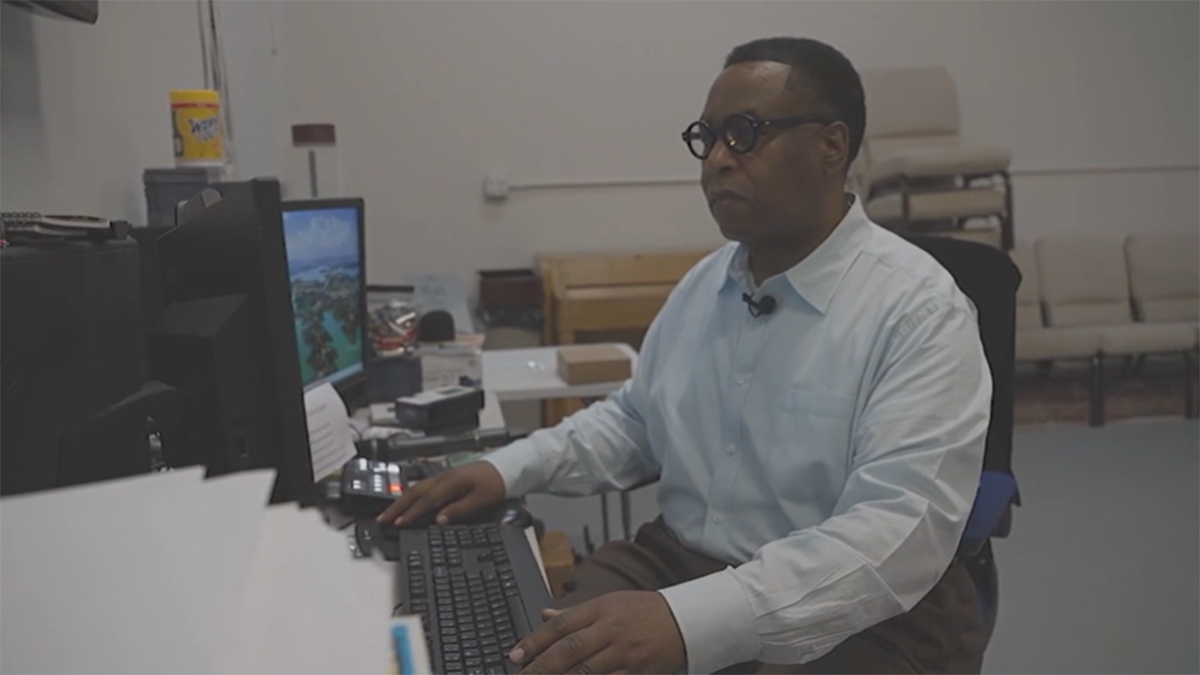The chairman of the commission investigating the Marjory Stoneman Douglas massacre says nothing would persuade him to call for Broward Sheriff Scott Israel to be removed from office by the governor. NBC 6’s Tony Pipitone reports.
The chairman of the commission investigating the Marjory Stoneman Douglas massacre says the panel has uncovered plenty that went wrong before and during the attack, but nothing that would persuade him to call for Broward Sheriff Scott Israel to be removed from office by the governor.
In an hour-long interview with NBC 6 last week at his headquarters in Largo, Pinellas County Sheriff Bob Gualtieri said Israel was responsible for what happened under his watch, just as Gualtieri is in his county.
“Just because your people are imperfect, or in some cases wrong, or in some cases negligent, or in some cases act improperly or engage in malfeasance or misfeasance like Peterson, that doesn’t mean the sheriff did,” Gualtieri said, referring to former school resource deputy Scot Peterson. “Peterson I would say had all the tools, had received the training and that was a situation where no matter what you did or what you gave that guy, he was just a coward who wasn’t going to act."
The sheriff, who’s also an attorney, was appointed chairman by Gov. Rick Scott, who also assigned the Florida Department of Law Enforcement to do a parallel investigation of the February 14 attack. Scott, or his successor, Ron DeSantis, could use FDLE’s conclusions to order Israel suspended.

But Gualtieri said if it were up to him to recommend an action to the governor, it would not be removal from office for misfeasance, incompetence or neglect of duty.
“One of the things that is a given about those incidents, is it is absolute chaos. The question is how much of it is going to be organized chaos. So there are some things certainly everybody can learn from but I don’t see anything that rises to that level or even close to that level,” Gualtieri said.

The Marjory Stoneman Douglas High School Public Safety Commission began a two-day meeting Wednesday in Tallahassee with a discussion on findings that contributed to the shooting that left 17 dead.
The commission discussed security lapses that allowed suspect Nikolas Cruz to enter the school, including unlocked and unstaffed gates and doors.

The members will also consider arming security on all campuses, with explicit orders to confront shooters; improving communication systems on campus; and imposing more statewide uniformity in how troubled students are identified and helped.
If Israel did not have active duty policies or training mandated for all deputies, then Gualtieri said he might be more inclined to suggest the sheriff deserved suspension by governor. But the Broward Sheriff’s Office did have those in place.
One of the things the chairman found lacking by sheriff's deputies was the urgency of their response after it was clear shots were being fired.
Local
“My belief is that a number of those deputies should have gone in. They shouldn’t have waited,” he said, noting at least six arriving deputies heard some shots, even if they came as the killer tried futilely to fire through a third-floor window after the last victim was shot.
“That doesn’t change the fact, because they didn’t know that,” he said. “So they can look back and they can say in hindsight, well, those were the last shots, (but) they don’t know whether first shots, last shots or there were more kids to be killed. Those deputies that didn’t go in, should have gone in.”
After the commission identified at its November meeting several deputies who in members’ opinion did not act properly, Israel assigned two to administrative duties while under investigation and the top ranking commander in Parkland, Capt. Jan Jordan, resigned.
The commission must file its initial report to Gov. Rick Scott, incoming Gov. Ron DeSantis and the Legislature by Jan. 1.
One change in policy Gualtieri will recommend is the wording on whether a deputy should confront an active assailant. Broward’s policy says the deputy “may” go into the building and confront, but Gualtieri’s agency and others stress the deputies are expected to go in.
He agreed with Israel that you cannot have a policy mandating entry in all possible circumstances, because here may be booby traps or explosive devices or any number of other factors that have to be weighed.
But interviews with deputies on scene on Feb. 14 revealed, despite the leeway suggested by the wording of the policy, they knew from their training that the priority was to go in and confront the threat.



